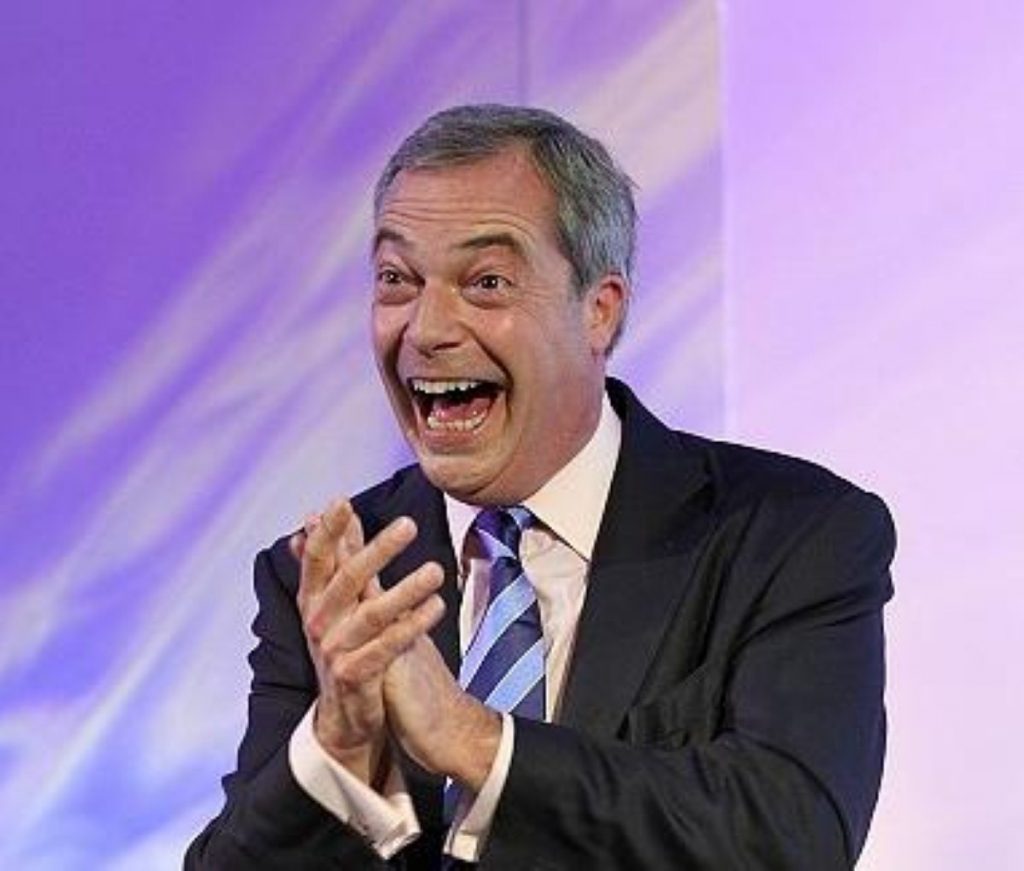PMQs verdict: Playing into Ukip’s hands
There is deep disquiet in Westminster after this week's prime minister's questions, with MPs on both sides of the House speaking out against their party leaders for helping Ukip.
Ed Miliband's decision to focus part of his questioning on immigration appears to have divided the party. Some on the Labour backbenches are staunchly in favour of a stronger stance on the issue and were relieved by the leader's late arrival to the issue. Those facing a Ukip threat, in particular, seemed delighted.
But others were very, very concerned. One shadow minister compared the state of the debate to "two bald men fighting over a comb".
That is a strikingly disloyal comment, yet it's also a fair one. The tone of the exchanges this lunchtime was one of vitriol against the failure of the other side. David Cameron, who is forced to talk about immigration because it's the best way for him to combat Nigel Farage, is in a position of weakness. He has "failed", as Miliband put it, to achieve his goal of cutting immigration from the hundreds of thousands to the tens of thousands.


On its own terms this is a decent argument to make. "The British people are our boss, they want the system sorted," Cameron said. "They know with this party [the Conservatives] we will address it." Yet, as Miliband pointed out, the Tories have not sorted it. He referred to a 16-point pledge card the Conservatives distributed around the country at the height of the 2010 election campaign. "If we don't deliver our side of the bargain, vote us out in five years' time," it declared. Pointing that out was the most effective thing Miliband did all lunchtime.
It has come at a point. Scoring points on immigration has left some Labour MPs feeling very uneasy. They note that Miliband has largely avoided the issue over recent years and is something of a late convert. He is vulnerable to attacks from Cameron because this, ultimately, was one of the issues Labour lost the general election on.
Miliband himself neatly divided up the issue into two parts, the emotional and the technical, when he talked of ministers mixing "callousness with incompetence" on immigration. It would have been better if he had focused exclusively on the former, given the government's weak position in resisting steps to help save drowning immigrants in the Mediterranean. Accusing the Tories of lacking "basic humanity" is a stock-in-trade for Labour.
Marrying that with "incompetence" is more difficult. You can't really do it unless you endorse the policy the government's failing that. Miliband did not make Labour's position especially clear.
PMQs is an opportunity for party leaders to shore up support, to rally the faithful. Miliband appears to have been only partially successful in that. Some MPs have been left feeling like his contributions were deeply unhelpful.
Cameron's backbenchers are not entirely happy either. The PM's tactic of taking on Angela Merkel and co over immigration is one doomed to fail, one warned. Even hardline eurosceptics don't have any illusions about the merits of Cameron's strategy. It should have been an approach that got them applauding enthusiastically; many of them were at pains to do so in Monday's statement on the issue. Privately, though, they are concerned the PM doesn't stand much chance of success.
Ukip only has one MP, but it is dominating Westminster. Its rhetoric of Britain leaving Europe and tirades against immigration are shifting British politics to the right. Everything that happened in this PMQs was good news for Farage.


